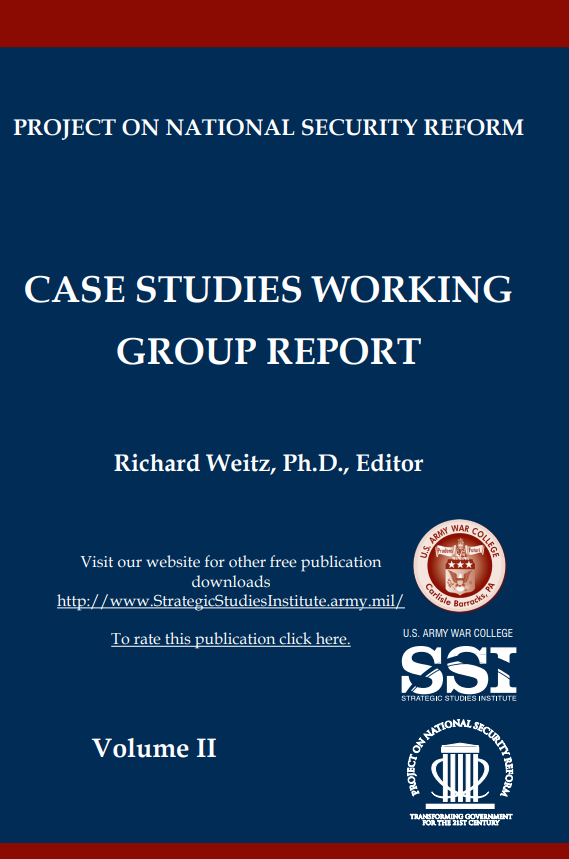 Author: Dr Richard Weitz
Author: Dr Richard Weitz
The case studies in this volume confirm the conclusions of other PNSR analyses that the performance of the U.S. national security apparatus in inconsistent. Although some cases illustrate relatively clear, integrated strategy development, unified policy implementation, and coherent tactical planning, coordination, and execution; others depict flawed, divided, contradictory, and sometimes nonexistent strategy promulgation and enactment. Similarly, the U.S. national security system can provide resources efficiently, but it also can do so inadequately and tardily. Flawed responses recur in issue areas as diverse as biodefense, public diplomacy, and military intervention. They also occur across many presidential administrations, from the onset of the Cold War to the present day. The piecemeal organizational reforms enacted to date have not fostered improved policy outcomes or decisionmaking, while capability building, especially in the civilian national security agencies, remains less than optimal.